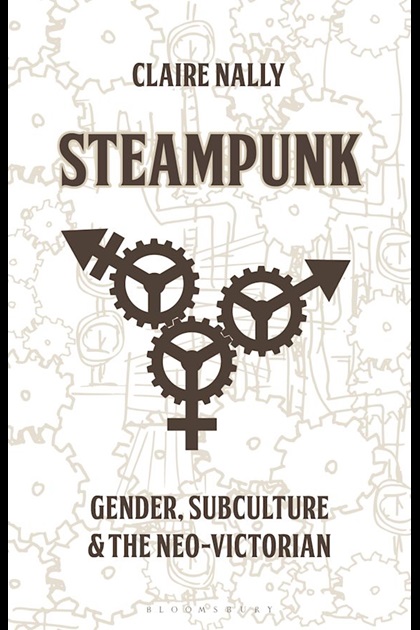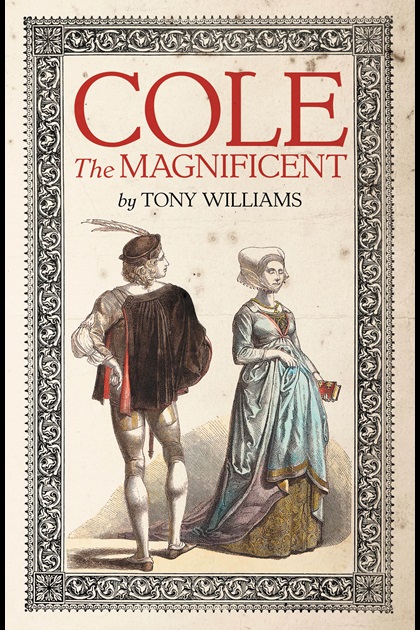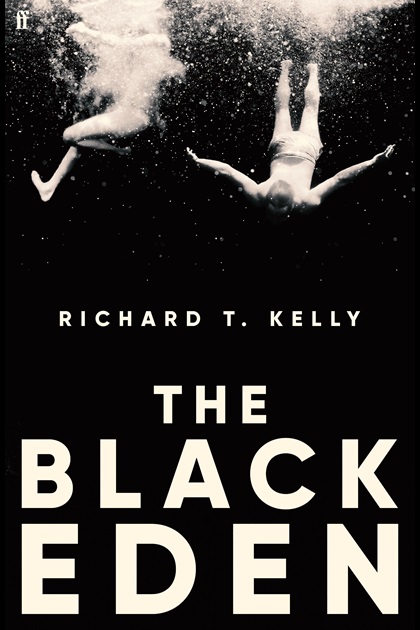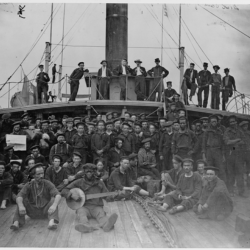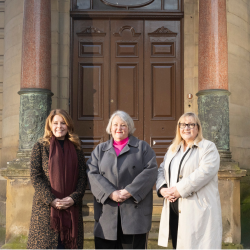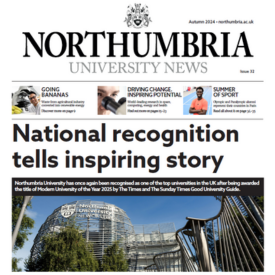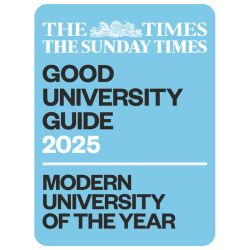The Modern and Contemporary Writings Research Group at Northumbria draws colleagues from across a range of disciplines and welcomes both practice-based and theoretical understandings of ‘writing.’ We have members who are script writers, film scholars, and literature specialists, covering a broad chronological remit from the early twentieth century to the present day. We specialise in thinking about texts, understood in the widest sense as cultural artifacts, and consider questions around adaptation; the role of writing in the community; writing and policy; genre fiction and film, historical fiction and non-fiction, as well as creative writing practice.
Our international membership includes scholars who have attracted extensive research funding from a range of sources, including the British Academy, the Wellcome Trust, the Leverhulme Trust, and the AHRC: for instance, Diletta De Cristofaro’s ‘Writing the Sleep Crisis’ project (2020-2024) has been funded by a Wellcome Trust Research Fellowship in Humanities and Social Sciences, while Ann-Marie Einhaus, Tony Williams and May Sumbwanyambe’s project ‘Ephemera and writing about war in Britain, 1914 to the present’ (2021-2024) has been funded by an AHRC Standard Research Grant. In 2022, Richard O’Brien’s memoir-autobiography project, ‘“Never forget what it felt like to live in rooms like these”: Exploring John Darnielle’s Portland’ was awarded a British Academy/Leverhulme Small Research Grant. In partnership with Redbridge, Kirklees and Newcastle Libraries, Claire Nally and Stacey Pitsillides (Design) led the Death Positive Libraries project (2020-2021), funded by Carnegie, Wolfson and Wellcome. This work became part of the national framework for Libraries Connected and won a national award for contributions to health and wellbeing.
We have contributed to a range of key journals in the field, including C21 Literature, Textual Practice, Literature & History, Critique: Studies in Contemporary Fiction among others. We organise symposia and public-facing events such as the Reimagining Sleep Café, led by Diletta De Cristofaro as part of the Being Human Festival in November 2023.
Members
Claire Nally has research interests in Irish Studies, Neo-Victorianism, gender, and subculture. Her latest research involves contemporary culture's engagement with memory, grief and mourning through her forthcoming book, Death Memoirs in Contemporary Culture.
Richard O'Brien is a poet whose most recent pamphlet, The Dolphin House, was published in 2021 by Broken Sleep Books. In 2017 he won an Eric Gregory Award from the Society of Authors, and in 2022 he was awarded British Academy funding to travel to Portland, OR for an ongoing project on the American songwriter John Darnielle. His most recent project is an experimental novel set in Nantes, France, which further develops his interests in place and memory. He has published extensively on contemporary adaptations and retellings of early modern literature and history.
Tony Williams is a poet and fiction writer. His practice research into the forms and techniques of medieval writing produced two novels, Nutcase (2017), an adaptation of the Icelandic saga of Grettir the Strong into a contemporary setting, and most recently Cole the Magnificent (2023), a picaresque which draws on a range of medieval forms and the ‘mixed modality’ of saga narrative in which the real and the fantastical coexist. His poetry collection Hawthorn City (2019) also engages with medieval material while continuing the interest in landscape and the contemporary pastoral developed in his earlier collections.
Kiriaki Massoura works on contemporary women writers in relation to critical and cultural theory of feminism, gender, psychoanalysis, the body, space and language. She is particularly interested in the genres of historical and dystopian fiction.
Diletta De Cristofaro works across the environmental and the medical humanities, with a focus on twenty-first-century narratives of crises, from the climate crisis to the sleep crisis. She is the author of The Contemporary Post-Apocalyptic Novel (Bloomsbury, 2020) and is currently leading a project considering representations of sleeplessness in literature, film, digital culture, and the visual arts.
Ann-Marie Einhaus works on literary representations of conflict, especially the First World War, from 1914 to the present. She has particular interests in historical fiction and in links between literature, culture and memory.
Sarah Bowman is a former director of policy and communications whose research focuses on language (and other texts) as a form of identification and belonging. She is interested in organisational dialogue and positioning and how this impacts beliefs, as well as sense-making and sense-giving recognising the role of emotion, temporality and materiality to human understanding.
Corin Sworn is a visual artist working with text and image installation. She is interested interpretive practices that disrupt promises of functionality and technological prowess in favour of making palpable intimate and affective relations. Recent projects and exhibitions include Moving in Relation, a public research series with The Common Guild (2023), Glasgow; Virtual Boulevard, poets in translation with SPAM press, the radio play Fabric Noir for Radiophrenia (2022); OCAT Shenzhen (2021). Sworn was awarded a Leverhulme Prize in 2016 and the Max Mara Art Prize for Women in 2014.
Len Collin is a screenwriter best known for his TV work on The Bill, London’s Burning, Ultimate Force and Soldier Soldier. He is also director of the feature film Sanctuary (2016) which tells the story of forbidden love between a woman with epilepsy and a man with Downs, and the forthcoming feature, set in 1970s Newcastle, The Guinness Girl which is the true story of Maria McAteer who became the first black world champion Irish dancer. Len’s writing focuses on social injustices and representation, particularly as it may pertain to the Irish diaspora.
Rachel Warriner's research focuses on the relationship of activism to practice, particularly on how artistic communities contributed to political change in the U.S., Ireland and Northern Ireland during the 1970s and 1980s. Considering how political and creative texts helped to forge artistic identity, her work explores the role of gender and emotion in building community and creating new ways of making and thinking about art. She has published on the subject in her book Pain and Politics in Postwar Feminist Art: Activism in the Work of Nancy Spero (Bloomsbury, 2023).
James Leggott is a scholar of British film and television history, with a particular interest in contemporary production, regional representation, popular genre, and under-recognised creative figures. He is the author of Contemporary British Cinema: From Heritage to Horror (Wallflower, 2008), In Fading Light: The Films of the Amber Collective (Berghahn, 2020) and The Representation of North East England in Film and Television (Palgrave, 2021). He has co-edited collections on UK science fiction, comedy, and period drama.
Katherine Baxter’s research explores colonial and postcolonial literatures, law and literature, and literary multilingualism. She is particularly interested in how literary genres shaped colonial discourse and the intersections of literature with post/colonial legal administration. She has also published extensively on Joseph Conrad, including work on Conrad’s uses of romance and on Conrad’s engagement with other art forms.
Richard T. Kelly is the author of four novels: Crusaders (2008); The Possessions of Doctor Forrest (2011); The Knives (2016); and The Black Eden (2023). He has published several interview-based studies of filmmakers: Alan Clarke (1998), The Name of this Book is Dogme 95 (2000) and the authorised biography Sean Penn: His Life and Times (2004). In 2013 he co-wrote Judith Tebbutt’s memoir of hostage in Somalia, A Long Walk Home. Keegan & Dalglish, his study of two legendary footballers, was published in 2017. Eclipse, his first screenplay for television, was broadcast by Channel 4 in 2010. He is currently a tutor with the Faber Academy writing school.
Other members include: Matt Hargrave, Matthew Kelly, Kate Liston, Johnny Walker, Victoria Horne
PhD students
Yeisil Peña studies the tricontinental solidarity in Postcolonial literature from Nigeria, Pakistan and Chile in contemporary fiction written by women. Her research interests include transnational feminist theory, subaltern studies, and the relation between contemporary literature and recent political movements involving women. She engages with subaltern voices in English and Spanish and has published on African literature and Postcolonial approaches to feminism.
Emma Catan studies cross-dressing and transgression in neo-Victorian literary spaces. Their research interests include the legacy of the nineteenth century in literature and popular culture, genre fictions, postmodern and postcolonial imaginings of Victorian life. They are an Executive Committee representative of the British Association of Contemporary Literary Studies (BACLS) and Victorian Popular Fiction Association (VPFA).
Jessica De Waal studies the children’s writing of Ted Hughes under an ecocritical lens to highlight his environmental consciousness and urge to educate the next generation to respect both nature and the nonhuman. Her research interests include ecocriticism in modern and contemporary literature, children’s fiction, the double address, landscape, and tensions around the Anthropocene. She is a member of council for the Ted Hughes Society and plans to publish work related to her research.
Olivia Colborn studies the way that modernist culture was disseminated and received in Newcastle during the high modernist period of 1910-1939. She is currently collaborating with Newcastle’s Literary and Philosophical Society on this project. Her research interests include regional modernism and representations of place in modernist writing.
Below are a selection of published book covers authored by members of the Modern and Contemporary Writings Research Group
